
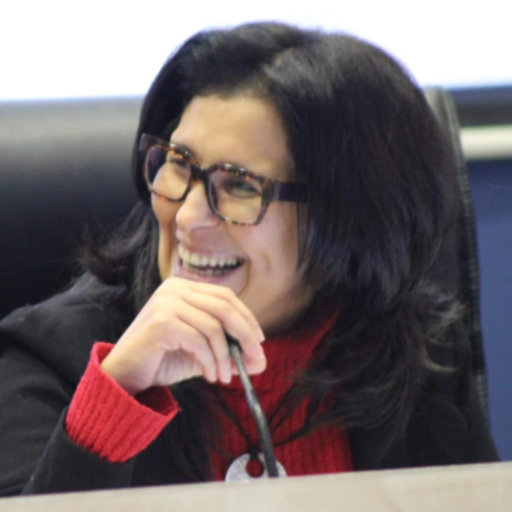 Dr. Jouhaina Ben Boubaker Gherib, Professor of Management, jouhaina.gherib@uma.rnu.tn
Dr. Jouhaina Ben Boubaker Gherib, Professor of Management, jouhaina.gherib@uma.rnu.tn

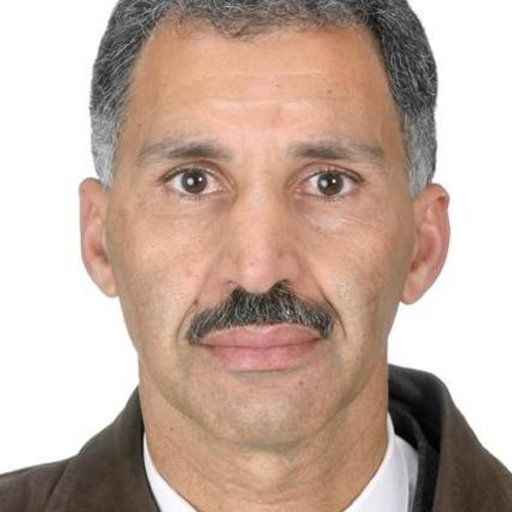 Dr. Hamadi Matoussi, Professor, hamadi.matoussi@iscae.rnu.tn
Dr. Hamadi Matoussi, Professor, hamadi.matoussi@iscae.rnu.tn
 Dr. Hamida Skandrani, Professor, hamida.skandrani@gmail.com
Dr. Hamida Skandrani, Professor, hamida.skandrani@gmail.com

 Dr. Julie Robson, Associate Professor, jrobson@bournemouth.ac.uk
Dr. Julie Robson, Associate Professor, jrobson@bournemouth.ac.uk
 Dr. Elvira Bolat, Senior Lecturer, ebolat@bournemouth.ac.uk
Dr. Elvira Bolat, Senior Lecturer, ebolat@bournemouth.ac.uk
 Dr. Kaouther Kooli, Senior Lecturer, kkooli@bournemouth.ac.uk
Dr. Kaouther Kooli, Senior Lecturer, kkooli@bournemouth.ac.uk
 Dr. Juliet Memery, Professor, jmemery@bournemouth.ac.uk
Dr. Juliet Memery, Professor, jmemery@bournemouth.ac.uk
 Dr. Hiroko Oe, Senior Lecturer, hoe@bournemouth.ac.uk
Dr. Hiroko Oe, Senior Lecturer, hoe@bournemouth.ac.uk

 Dr. WAFA KHLIF, Professor of Accounting, w.khlif@tbs-education.es
Dr. WAFA KHLIF, Professor of Accounting, w.khlif@tbs-education.es

 Dr. Samir Trabelsi, Brock University, strabelsi@brocku.ca
Dr. Samir Trabelsi, Brock University, strabelsi@brocku.ca

 Dr. Riadh Ladhari, FSA, Laval University, riadh.ladhari@fsa.ulaval.ca
Dr. Riadh Ladhari, FSA, Laval University, riadh.ladhari@fsa.ulaval.ca

 Dr. Nektarios Tzempelikos, Senior Lecturer, nektarios.tzempelikos@anglia.ac.uk<
Dr. Nektarios Tzempelikos, Senior Lecturer, nektarios.tzempelikos@anglia.ac.uk<
Transformation is often associated nowadays with digitalization. Indeed, significant and substantial data are exchanged instantly and continuously within and between organizations as well as individuals. Accordingly, ninety per cent of the data in the world in 2017 were created in the last two years alone and the current output of data is roughly 2.5 quintillion bytes a day (iflscience, 2018). In this context, new opportunities as well as challenges, e.g. new markets, more efficient management strategy, stakeholders power balance, blurry organizational frontiers, constantly expose decision makers to new challenges. Hence, understanding digital transformation is becoming increasingly critical for decision makers.
However, the central and deep transformations are twofold: financialization and globalization. For a decade now, “financial markets” shaped western societies and emergent countries. This led to financializing almost anything. Financializing the economy means remodelling the regulation of the economy and the logic of accumulation. The investor’s profile has changed and has become international. For this purpose, a huge effort has been spent on standardizing, on the one hand, financial and accounting systems and, on the other hand, governance practices. Globalization refers to processes through which events and decisions in one part of the world can have significant consequences for individuals and societies in distant parts of the world (Arnold and Sikka, 2001). Its impacts are noticeable on economies but also on societies.
These deep transformations influence the way organizations design, perform and monitor many of their activities, e.g. financial and accounting reporting and auditing, accountability standards, human resources management, marketing management, information and knowledge management, information exchange regulations, ethical conduct, information privacy and security, etc. (Christen et al., 2019; Cordery et al, 2019; Deloite, 2019; Troshani, 2019; Bouwman et al., 2018; Parviainen et al., 2017; Riedl et al., 2017; Fanning and Centers, 2016; Lewis et al., 2014).
Whilst a large number of organizations are adhering to this dynamic, many others are still lagging behind.
In order to change, organizations need to implement creative management taking into account issues such as organizational structure, timeframe, expected outcome, their location/place/physical environment, their responsibility, among others. Such issues call for new insights and perspectives for both practice and theories. Addressing this gap calls for research that provides insights into how organizations from different backgrounds are surfing the complex realities. Insights from different stakeholders’ perspectives i.e. organizations, governments consumers, regulation organizations, education institutions, and others, are welcomed.
Additionally, as Westley et al. (2017) have typified, the transformation phenomenon is: “rarely a clearcut, one-step change. But, it is messy, fraught, contested, and happens at different scales and in different domains” (c.f. in Blythe et al. 2018). This conference invites authors to consider a large spectrum of transformative phenomena, technology, environment, culture, social, politic, driven, and to dig into their impact on organizations and their stakeholders’ decisions making process, their attitude and behaviour. Papers addressing new methodologies in dealing with these issues are also welcomed.
Submissions addressing issues related to the Colloquium topics are highly encouraged. All submissions will be subject to a double-blind review process. Authors should submit short papers to: colloque@ligue.rnu.tn. These later should be of a standard appropriate for highly ranked journals. Authors of selected best short papers will be invited to submit a full paper for a potential publication in special issues of two journals: Qualitative Market Research: An International Journal (ABS, CNRS, Scopus) and Cogent O&A Business and Management (ABS). Manuscripts must be original and unpublished and not under review for publication elsewhere. Success in the review process will not guarantee publication in the special issues supporting this event, but to be accepted for special issue publication, papers need to be presented at the conference. Please prepare your manuscript before submission, using the following guidelines: Article files should be written in English and provided in Microsoft Word format. Please ensure that the text is in Times New Roman font style, font size 12, with 1.5 spacing. Articles files should include:
1- A cover sheet (page 1) including the title of the paper, the author’s name(s), title(s),
institutional affiliations and contact details, with the primary contact person designated.
2- A structured abstract on page 2: authors must supply a structured abstract (maximum 250
words in total) set out under 7 sub-headings. The authors’ name(s) should not be on the
abstract itself.
• Purpose
• Design/methodology/approach
• Findings
• Research limitations/implications
• Practical implications
• Social implications
• Originality/value
• Keywords: authors should provide appropriate and short keywords that encapsulate
the principal topics of the paper. The maximum number of keywords is 4.
3- Starting from page 3, a short paper of 5 to 7 pages in length (not including references),
prepared as follows:
● Introduction
● Key literature review
● Design/methodology/approach
● Findings/discussion
● Research limitations/implications
30 September 2019: Full paper submission closes at midnight
30 October 2019: Review decision notified to authors
Conference Fees
Registration dates: 4th to 25th of November 2019
| Academic | Students (PHD and MASTER STUDENTS) |
Professional |
|---|---|---|
| 150 Euro or equivalent in TND | 100 Euro or equivalent in TND | 170 Euro or equivalent in TND |
| Register now (**) | Register now (**) | Register now (**) |
Information
Conference fees will cover coffee breaks, one lunch, and conference pack.
There will be no refund of the fees for cancellation.
At least one author of accepted papers are required to register for conference AND to present the accepted research at the conference.
Payment can be made via Bank transfer
Bank account details
Account Name: Association pour la Promotion de l’Innovation et de la Qualité (APIQ)
RIB: 04 021 107 0019 49398 0 81
IBAN – International Banking Account Number: TN59 04 021 107 0019 49398 0 81
Name of the Bank: Attijari bank
(**) For Tunisian researchers affiliated to a Tunisian university and residents in Tunisia, as well as professionals resident in Tunisia, the conversion rate is: 1Euro = 3 TND





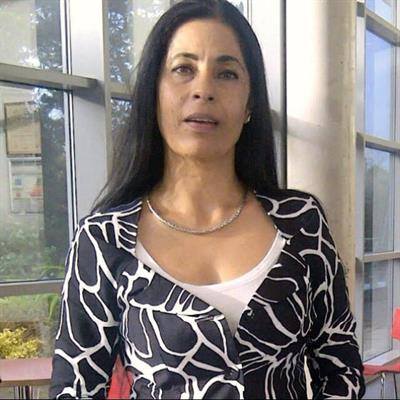 | - Prof. Sangeeta KhoranaDr. Sangeeta Khorana is a Professor at Bournemouth University. She is an expert on EU-India trade relations, in particular on EU-India FTA issues. She has published several articles on the proposed EU-India FTA. Dr Khorana has a Ph.D. from the University of St. Gallen, and a summa cum laude Masters’ degree from the Berne University in Switzerland. |
 | - Prof. Hadj Nekka Dr. Hadj Nekka is Professor of Humain Ressources Management at the University of Angers (France). He is also the Editor of the RISO Journal (FNEGE), His research interests |
 | - Prof. Wafa Khlif Dr. Wafa Khlif is a Professor in Management Control at Toulouse Business School |
 | - Prof. Samir TrabelsiDr. Samir Trabelsi is a Professor of Accounting and Governance at the Goodman School of Business. Professor Trabelsi began teaching at Goodman School of Business in 2004. He holds a PhD in Accounting from HEC Montreal and a CPA designation. He has taught courses in corporate governance, external reporting, and research methodology. Trabelsi’s research interests are in the area of corporate governance, sustainability, Corruption, and risk management. Trabelsi’s research is funded by the Social Sciences and Humanities Research Council of Canada. He has also been the recipient of Brock University Award for Excellence in Teaching (2017) and the Departmental Researcher of the Year Award (2019). |
 | - Dr. Héla Yousfi, Associate Professor (Paris Dauphine) Hèla Yousfi is Associate Professor, at the University Paris-Dauphine. |
 | - Dr. Ouafa SakkaDr. Ouafa Sakka is an Associate Professor in Accounting, Sprott School of Business, Carleton University. She holds a PhD in Business Administration, from HEC Montreal.
Dr. Sakka has been a faculty member at Sprott since 2008. She has developed a thriving research program that integrates Accounting with other business areas; a multidisciplinary research program that is quite unique because it delves into the accounting world from a decision-making perspective and a specialization in Internal Controls.
|
 | - Dr. Kaouther Kooli (Principal Lecturer, Bournemouth University)Dr Kaouther Kooli is a Principal Lecturer in Marketing in the Department of Marketing, Strategy and innovation at the Faculty of Management, Bournemouth University. She holds a Doctorate in Marketing. She is the Associate Editor of the Journal of Customer Behaviour and the Chair of the Academy of Marketing B2B Special Interest group. Her research interests are in B2B marketing and digital marketing. She has published in CABS ranked journals. Kaouther has been invited to give talks at a number of Universities both national and international. |
 | - Dr. Hiroko Oe (Senior Lecturer, Bournemouth University)Dr. Hiroko Oe is a Senior Lecturer in Marketing at Faculty of Management, Bournemouth University. She holds a Ph.D. degree from Waseda University (Japan), MSc Regulation from the London School of Economics and Political Sciences, and BEcon from the University of Tokyo. After working for the Central Government, Japan as a policy maker and a coordinator, she moved to the academia. Her experiences include some UN activities in policy collaboration in the telecommunications field at OECD and ITU. |
 - University of Manouba
- University of Manouba
 - ISCAE - Manouba
- ISCAE - Manouba
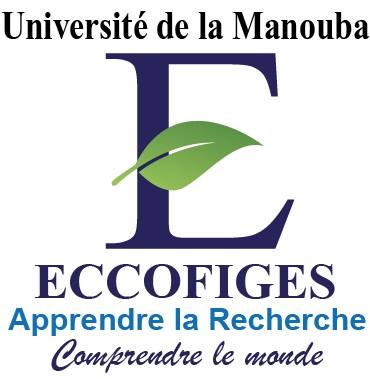 - ECCOFIGES
- ECCOFIGES
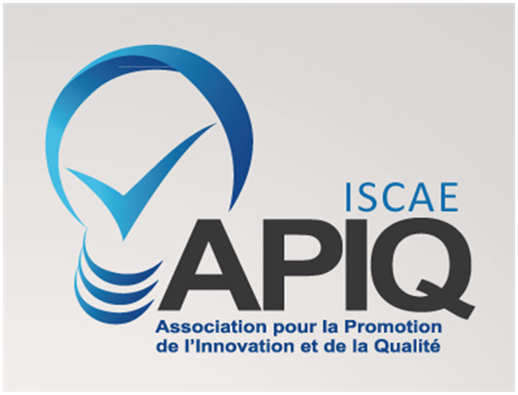 - Association pour la Promotion de l’Innovation et de la Qualité (APIQ)
- Association pour la Promotion de l’Innovation et de la Qualité (APIQ)
 - Association des Anciens de l’ISCAE
- Association des Anciens de l’ISCAE
- The Academy of Marketing Business to Business Special Interest Group
 - Premium Multi Services
- Premium Multi Services
 - Biolive company
- Biolive company
 - Sartex Group
- Sartex Group
 - Justech
- Justech
The 4th Edition of the Laboratory LIGUE International Conference 2019
Deep Transformations and the future of orgonizations
The Penthouse Hotel, Tunis, 6&7 Dec. 2019

